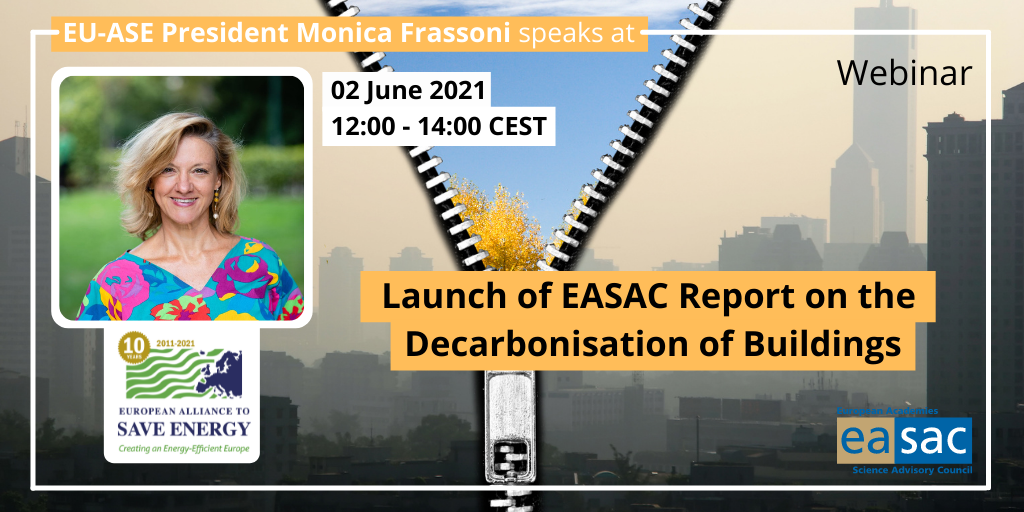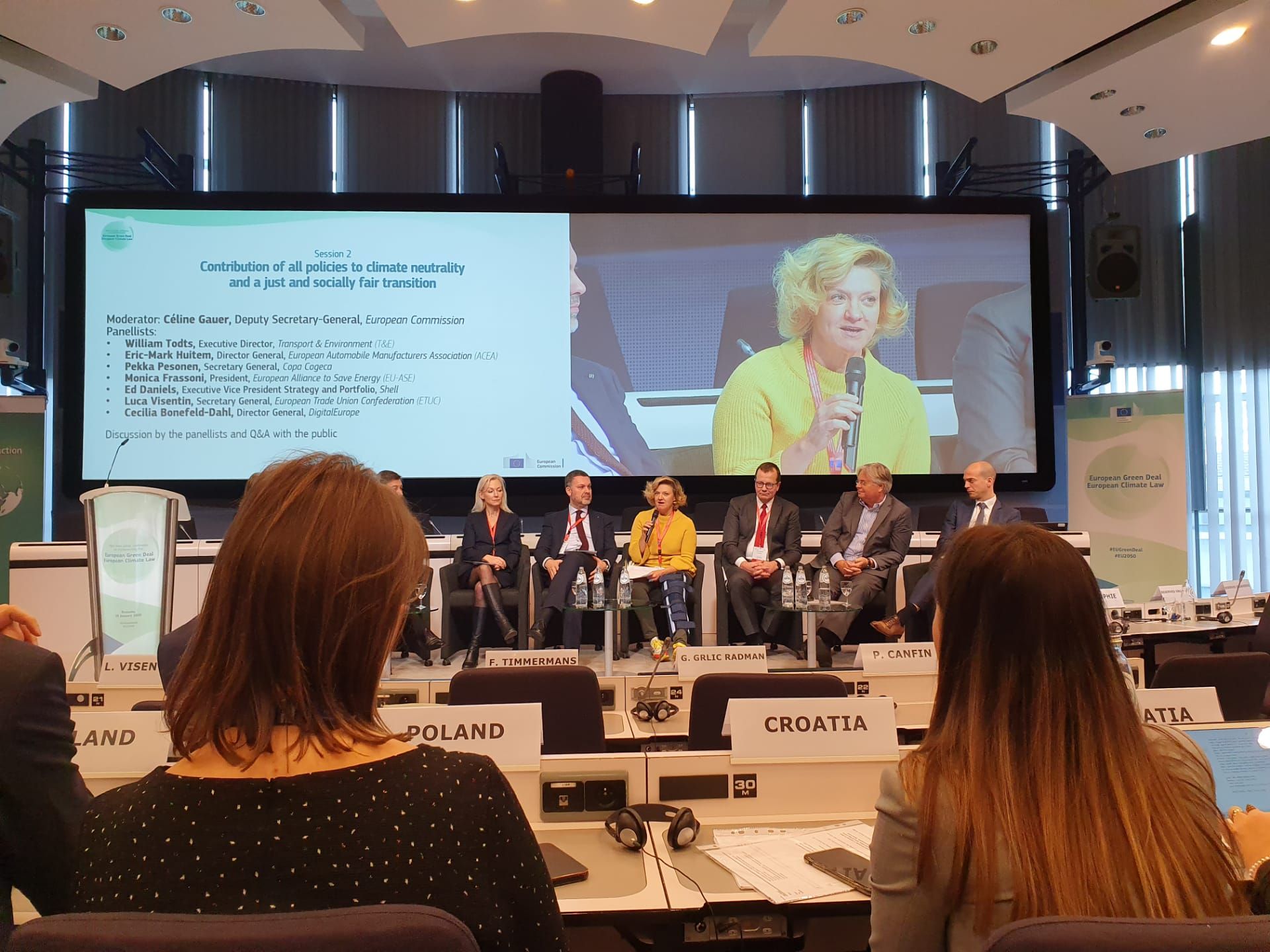Monica Frassoni’s speech at launch of EASAC report “Decarbonisation of buildings for climate, health and jobs”

On 2 June 2021, the president of the European Alliance to Save Energy Monica Frassoni participated in the panel discussion for the launch of the report “Decarbonisation of buildings: for climate, health and jobs” by the European Academies Science Advisory Council (EASAC).
Here are some excerpts from her speech:
- The holistic approach of the study is great. There is no silver bullet for the decarbonization of buildings. We need several approaches and to enhance the use of existing technologies There is no time to invest in uncertain technologies. Efficiency measures in industry, buildings, appliances and transport already exist and can be put into effect and scaled up very quickly.
- Energy Efficiency is an existing and certain technology. Energy Efficiency, intended as reducing energy demand and optimising consumption, is recognized but we didn’t notice anywhere in the report the specific reference to make “Energy Efficiency First” principle (EE1) a pillar of the EU future energy system.
- The EE1 is needed to get all the non-energy related benefits of decarbonizing buildings, to alleviate energy poverty, to correctly size the RES supply required to match buildings residual energy demand, to improve the flexibility of buildings and their capacity to store energy, to phase out fossil fuels and avoid stranded assets as well as increase our energy security); The EE1 is instrumental to energy system integration and finally the principle is a driver for energy, resource/material efficiency and full application of circularity principle.

